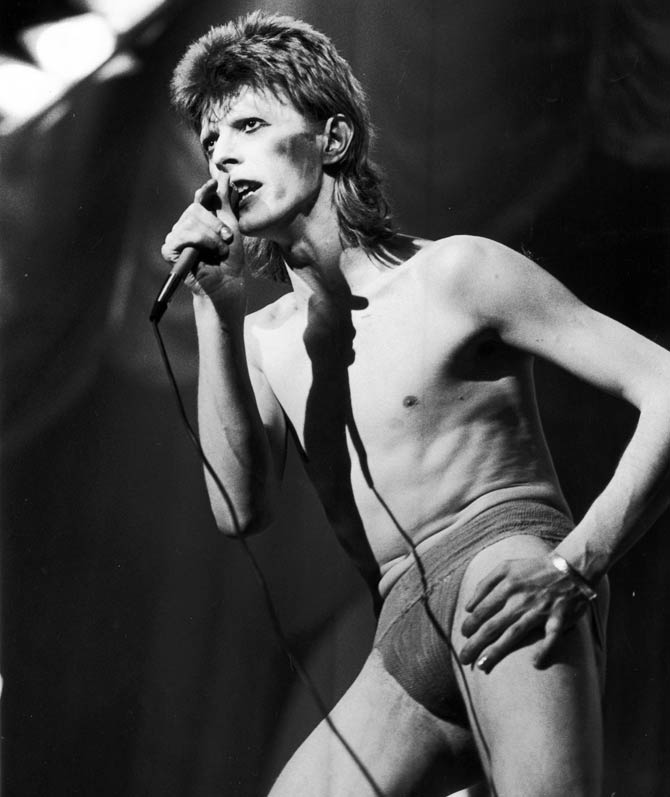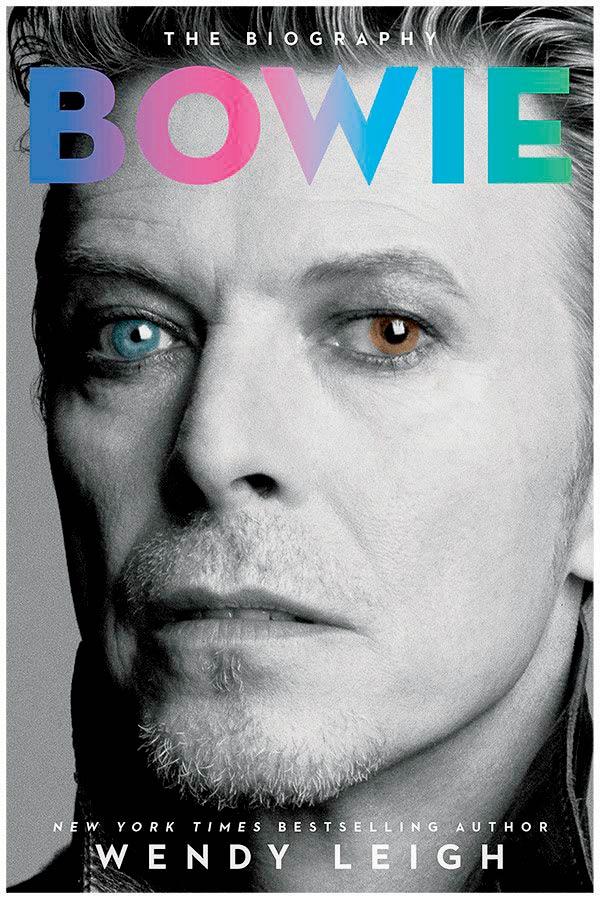David Bowie fans interested in his music, why it matters, or how he evolved as an artiste, should purchase other books that answer those questions

David Bowie fans interested in his music, why it matters, or how he evolved as an artiste, should purchase other books that answer those questions. All this one does is supply a great deal of information about the iconic musician’s love life. There is something to be said for biographical criticism, of course, in that an artiste’s life does have an impact on his or her work. And yes, the influence of his first wife Angie alone justifies an enormous amount of prose.
ADVERTISEMENT
 British rock singer and actor David Bowie performing as ‘Ziggy Stardust’ in 1973. Pic/Getty Images
British rock singer and actor David Bowie performing as ‘Ziggy Stardust’ in 1973. Pic/Getty Images
Having said that, this book comes across more as an attempt to cash in on the hunger for information about Bowie, in the wake of his sudden death earlier this year, than an honest attempt at evaluating his life or work. A great many people will love it, perhaps, because a great many people derive a lot of pleasure from reading about the sex lives of the rich and famous. Fans of the artiste, sadly, will derive almost no satisfaction from the unending stream of voices that shed almost no light on the music.

Bowie: The Biography, Wendy Leigh, Simon & Schuster, Rs 699. Available online and at leading bookstores
Bowie’s influence on gender studies is underwhelming, and his sexual exploits deserve to be looked at from that perspective, primarily because his attitude to sex in the sixties helped break down a number of barriers in an England that would put conservative Haryana to shame in our day and age. His love life needs to be examined through that filter though, not the filter of a tabloid that seeks only to titillate rather than edify. It is undoubtedly interesting to read about his dalliances with everyone from Susan Sarandon and Charlie Chaplin’s widow Oona to Elizabeth Taylor as well as the women who actually rejected him. This begins to get tiresome after a point though, when none of these relationships, however fleeting, add value to our understanding of the artiste.
Leigh does spend a certain amount of time examining Bowie’s early life, especially the impact his half-brother Terry had on him. Eventually, one must consider that this book is being marketed as a ‘biography.’ There are far better books deserving of that tag.
 Subscribe today by clicking the link and stay updated with the latest news!" Click here!
Subscribe today by clicking the link and stay updated with the latest news!" Click here!






